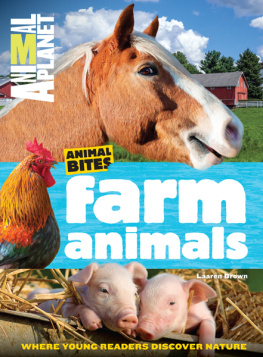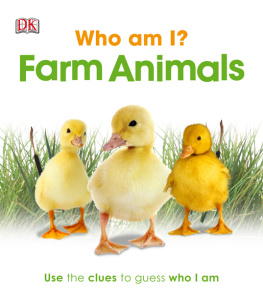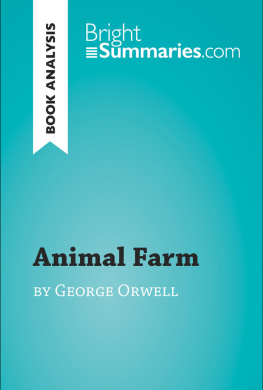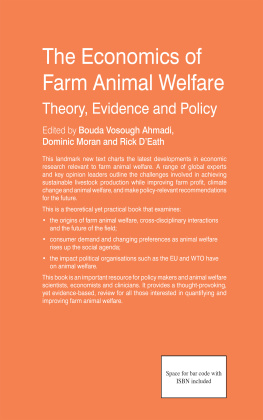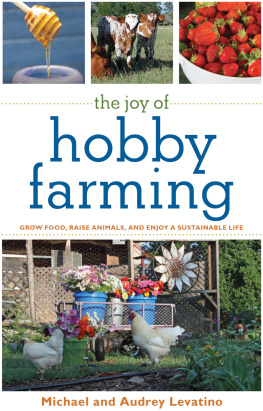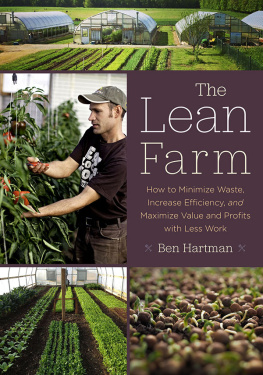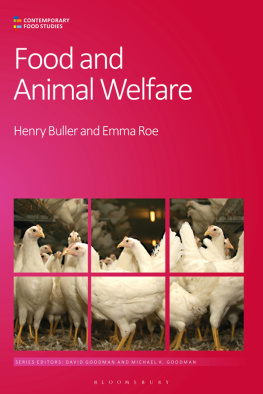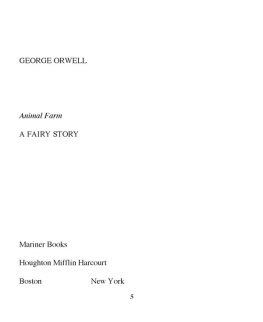PROJECT
ANIMAL
FARM
AN ACCIDENTAL JOURNEY
INTO THE SECRET WORLD OF FARMING
AND THE TRUTH ABOUT OUR FOOD
SONIA FARUQI

PEGASUS BOOKS
NEW YORK LONDON
To my twin sister, Sofia,
for all her love and support
CONTENTS
Growing up, I seemed almost earmarked for the financial world, as I was both studious and materialistic. I was a small mass of seriousnessa little librariancompleting my assignments early and happily. I preferred class to recess, homework to hopscotch. In middle school, I would for hours paint still lifesa bowl of apples or a vase of flowersfeeling that my own life was a still lifea cantaloupe compressed into a teacup. My core longed for more, mentally, materially.
My wallet was wide enough to fill the well of my needsfood, school, shoesbut not the valley of my whims and wishes. I craved more clothes, more books, more boxesdainty little tins in which to cherish my dainty little things. My mother occasionally said, You like having things for the sake of having them; you have the joy of possession. I interpreted her comments as compliments: how sophisticated I was, I thought, to be possessed with the joy of possession.
After high school, I attended Dartmouth College, a small, liberal arts university with a campus dotted with trees. Each of its classes was an ingredient you were supposed to select, slice, and stir in the pot of your mind, toward the aim of not merely faring but flourishing. Dartmouth urged that for bonding purposes, its students hike together in small groups for five days before the start of school. Id never hiked beforebecause Id never wanted to, and Id grown up in city apartmentsbut I decided to participate because everybody else did. Two hours into my outdoor excursion, however, I realized that it was, as I termed it then, the biggest mistake Ive ever made.
My backpack felt like a rock strapped to my back, despite the fact that Id reluctantly unloaded my makeup and chocolates at the insistence of trip leaders. Worse, there was nothing for me to eat: I ate only meatshunning fruits and vegetables since childhoodand there was no meat, as it would have spoiled over the course of the trip. I decided to stop eating. An even more pressing issue than food was facilities. There were no toilets; we were supposed to go in the woods like chest-pounding cavemen. I decided to hold it for days. (And I did.)
Finally, there was the wildlife: I felt sure a bear would attack me as I slept. One night, I thought I heard an animal panting and salivating right beside my ear. GIVE ME YOUR FLASHLIGHT! I yelled at the snoring, sleeping bagencased form next to me, rattling him awake. I flashed his light everywhere. But there was no bear; there were only my trip members, awake and annoyed. I resolutely avoided the outdoors after that. The rugged life clearly did not suit me.
I graduated from Dartmouth College with a major in economics and public policy, and a minor in government. Degree in hand, I joined my classmates in a stampede to Wall Street. Wall Street was the money business, the fast track, a meal ready to eat, without the costly condiment of a graduate degree. I felt pleased and fulfilled when an investment bank offered me employment.
Investment banks had just one requirement of their young employees. They required that, as the moon revolves around earth, employees revolve around work. As an investment banker, I did not work to live, I lived to work. I did not eat to live, I ate to workand I ate at work. All of my mealsbreakfast, lunch, and dinnerI consumed in my cubicle, gobbling them up rapidly so that I could continue typing, calculating, working: a machine in the form of a woman.
But I enjoyed it. I liked feeling important. I liked having a paycheck. I liked wearing a suit every day. I liked strutting across the office carpet in high heels, papers under my arm. I liked my Upper East Side apartment, only a short walk from Central Park. I liked racing my fingers across my keyboard and my eyes across my computer screen. Every morning, I awoke like a golden retriever puppy salivating to start the day, unfazed by my seventy-hour work weeks. Wall Street was where I was meant to be, I felt.
Until I was let go.
The American economy began hemorrhaging immediately after I joined, starting with the subprime mortgage sector. The pain spread outward, until the entire financial system convulsed in its throes. Investment banks decreed that it was no longer profitable for them to continue to feed the small fry theyd lured into their nets with baits of bonuses. So they cut the nets. They laid off hundreds of thousands of employees. After two years of living in my cubicle, I was forced to leave it.
I planned to apply for roles at other financial firms. I would continue to burn with the same fire, only its cinders would be raked by another bank. My life would remain the same gift basket of enjoyment, tied with the green ribbon of Excel, adorned with the red bow of PowerPoint, but would shift to a new cubicle. After a break, though. Id worked nonstop on Wall Street, taking not even one sick day, and I thought a break would recharge my battery and help me recommence with renewed intensity.
During my break, I read books. I contemplated life. And I moved from New York to Toronto.
Since I had plenty of time on my hands, I decided to volunteer at a farm, imagining that the experience would be an adventure. I contacted a dozen organic and small farms with an enthusiastic offer of free assistance toward the production of their food. I was sure theyd be thrilled and grateful. They werent. Most of them were cold and uninterested. Only onean organic dairy farmaccepted my ambiguous offer, and only under one condition: that I volunteer with them not for a week at the most, as Id hoped, but for two weeks at the least.
I reluctantly agreed to the duration. The dairy farm reluctantly agreed to supply accommodation.
Id devoured the Little House on the Prairie books as a girl, and my mental image of organic farms resembled the pastoral, prairie-like setting of the books. I imagined that my farm stay would be both an education and a vacation, and that, shortly after, I would return to the prosperous world of suits, spreadsheets, and skyscrapers.
I had no idea what I was getting myself into.
Michael and Irene Miller were baffled to learn that I did not know how to drive a car, let alone a truck or tractor.
Youre how old? Irene asked me.
Twenty-five.
So how come you cant drive?
I take the subway.
Michael and Irene looked dissatisfied with my response. They were also confused to learn that I did not know anything about farmsnot even the difference between hay and straw. They claimed that this was like not knowing the difference between bread and bed. Hay was like breadto eatand straw was like a bedto sleep. Would I ever sleep on a slab of bread or eat my bed?
I would not, I assured them, embarrassed.
I was further embarrassed by my appearance. Irene Miller wore not a spot of makeup or jewelry, whereas I was wearing dangling earrings, bright blush, and a colorful top. I looked dressed for a party.
Irene seemed desperately eager to say something. Everyone around here is white, she told me in her Dutch accent, staring at my brown skin and black hair. A few years ago, a black family moved in. Not to our village, but to a nearby one. We never saw them, but we heard a lot about them because everyone stared at them and followed them. No one liked them. They stayed for only a little time. Since then, no other black familyor Jewish or Chinese or Indian, like youhas come to our community. Everyone here is white.
I did not correct Irene that my background is Pakistani, not Indian. I lived in downtown Toronto only three hours away from the Millers, but I felt like Id arrived in a foreign country.
Next page

